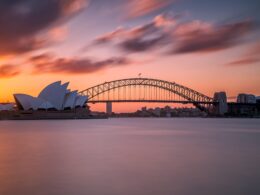JTC Corporation, a statutory board under Singapore’s Ministry of Trade and Industry, has appointed a consortium led by Univers, a global decarbonisation software company, and PacificLight Power, a local power generator and retailer, to design, build, and operate Singapore’s first district-level Smart Grid.
Located at Punggol Digital District (PDD), this groundbreaking Smart Grid supports Singapore’s green energy transition and aims to help the district achieve net-zero emissions before 2045. The project is jointly developed by JTC, the Energy Market Authority (EMA), and the Public Sector Science & Technology Policy & Plans Office (S&TPPO) under the Prime Minister’s Office.
The partnership with Univers and PacificLight will enable the installation of a Smart Grid integrating a battery energy storage system (BESS) and solar photovoltaic (PV) panels, optimising energy efficiency in the district through real-time data management and renewable energy generation. The solar installations will produce over 3,000 megawatt-hours of clean energy annually. The grid’s design includes peak shaving to reduce energy consumption during high-demand periods and to ensure a continuous, reliable power supply. Additionally, consumers in the district will have the option to participate in demand response programs, allowing them to adjust electricity use based on time-based pricing.
Located within Singapore’s highly anticipated Punggol Digital District, the Smart Grid will be the first of its kind for business parks in Singapore and is designed to significantly enhance district-wide energy efficiency. The project is currently in the design phase and is set to be completed by 2026. Along with other energy-saving features, the PDD Smart Grid is projected to achieve over 50% improvement in district energy efficiency, exceeding the Green Mark Platinum for Districts benchmark.
The Smart Grid’s operations will be managed by Univers’ Energy and Environment Operating System (EnOSTM), powered by AI and IoT, and connected via 4G to JTC’s Open Digital Platform. This system will enable real-time monitoring of energy use across the district, as well as integration with electric vehicle (EV) chargers, district cooling systems, and building management systems. Through advanced energy management features, businesses in PDD will be able to optimize energy usage, adopt renewable sources, and explore load-shifting options. With AI and machine learning, the grid aims for additional energy savings of up to 20%.
The Smart Grid’s capacity to enroll non-traditional energy assets, like backup generators and electric vehicles, opens up new avenues for PDD consumers to participate in the national electricity market. The Smart Grid could also interconnect with neighboring developments, enabling district-wide energy collaboration and resilience.
JTC’s collaboration with EMA and S&TPPO will transform PDD into a living lab, allowing companies to test their solutions in a real-world setting. This initiative supports Singapore’s goal of leveraging digital technology for sustainable urban solutions and includes testbed projects such as an underground deployment of the battery storage system with enhanced fire safety measures; a vehicle-to-grid (V2G) demonstration, with regulatory support; integration of rooftop solar photovoltaic (PV) systems alongside urban farming; and development of the Smart Grid platform as an enabling infrastructure for virtual power plants, with potential participation in EMA’s virtual power plant regulatory sandbox.
Low Xin Wei, Assistant Chief Executive, Markets and Systems Division, EMA said, “Distributed energy resources such as rooftop solar panels, district cooling and EV chargers have the potential to play a greater and broader range of roles in our energy system, especially as our renewable energy penetration increases. Coordinating these resources and their underlying operations is challenging but presents immense opportunities. PDD, with its mix of commercial and educational facilities, is a microcosm of how such smart grid management capabilities can eventually be scaled island-wide.”
Michael Ding, Global Executive Director, Univers said, “The project brings together our digital capabilities and energy management solutions to help businesses in PDD achieve energy efficiency and decarbonisation, underscoring our commitment to supporting Singapore’s smart nation and energy transition goals.”
Pang Chung Khiang, Group Chief Systems Officer, S&TPPO PMO said, “Through this smart grid testbed, we aim to promote active participation from businesses to aggregate energy demands and develop innovative business models to better manage the distributed energy resources as virtual power plants. This initiative will open doors to new business models that will benefit both consumers and the energy ecosystem.”






















